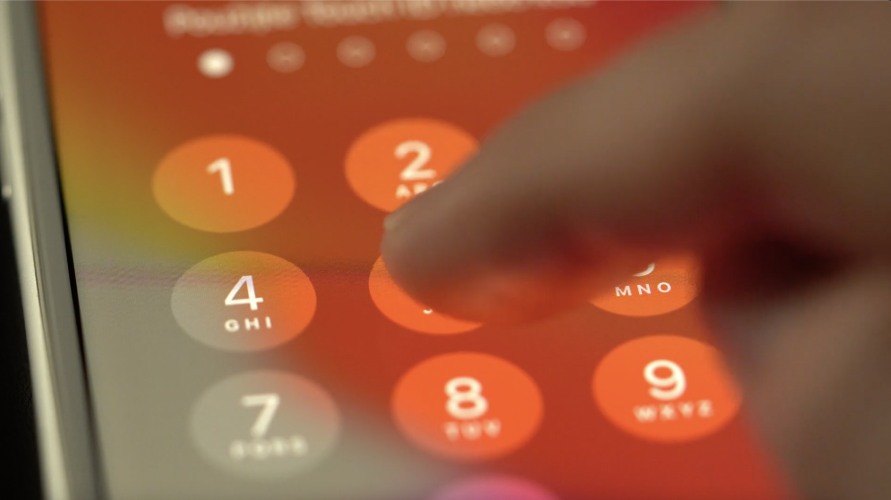SALT LAKE CITY — The Utah Supreme Court has ruled that people cannot be compelled to share their cell phone passcodes with law enforcement.
The Court's ruling, published late Thursday, will have significant implications for digital privacy. The state's top court unanimously ruled in favor of Alfonso Valdez, who was accused of kidnapping and assaulting an ex-girlfriend. FOX 13 News first reported on the Valdez case in 2021.
"He had a cell phone in his pocket, and the officers seized it from him. At some point thereafter, the officers obtained a search warrant for the contents of Valdez’s phone. But they were unable to access the phone’s contents because they could not crack his passcode. So a detective approached Valdez, informed him that he had a warrant for the contents of the cell phone, and asked Valdez to provide his passcode. Valdez refused. Without the passcode, the police were never able to unlock the phone to search its content," Utah Supreme Court Justice Paige Petersen wrote.
"Later, at Valdez’s trial, the State elicited testimony from the detective about Valdez’s refusal to provide his passcode when asked. And during closing arguments, the State argued in rebuttal that Valdez’s refusal and the resulting lack of evidence from his cell phone undermined the veracity of one of his defenses. The jury convicted Valdez."
But Valdez appealed and the Utah Court of Appeals reversed his conviction. The court declared that Valdez had a Fifth Amendment right to refuse to provide his passcode to police. The Utah Attorney General's Office then appealed to the Utah Supreme Court.
In Thursday's ruling, the Utah Supreme Court sided again with Valdez.
"The prevalence of passcodes that encrypt the information on electronic devices—which are often seized by law enforcement while investigating criminal conduct—has raised important questions about how the Fifth Amendment extends to law enforcement’s efforts to unlock these devices and decrypt the contents inside. These questions have proven to be especially complex where law enforcement attempts to access the contents of a seized device by means that do not require the suspect to disclose the actual passcode—like, for example, obtaining an order to compel the suspect to provide an unlocked device," Justice Petersen wrote.
But the Court acknowledged the circumstances are unique. Police asked Valdez to "verbally provide" his passcode to them and Valdez's refusal to do so shouldn't be held against him at trial.
"We agree with the court of appeals that verbally providing a cell phone passcode is a testimonial communication under the Fifth Amendment. And we also agree that the 'foregone conclusion' exception does not apply. This exception arises in cases analyzing whether an 'act of production' has testimonial value because it implicitly communicates information. But here, we have a verbal communication that would have explicitly communicated information from Valdez’s mind, so we find the exception inapplicable. Finally, we reject the State’s 'fair response' argument because the State elicited the testimony about Valdez’s refusal to provide his passcode in its case in chief before Valdez had raised any issue involving the contents of his phone," Justice Petersen wrote.
There are a number of court rulings with mixed decisions surrounding passwords, facial recognition and fingerprints to unlock phones and whether people can be compelled to produce them. This ruling is not likely to impact biometric use (Face ID) or fingerprints being used to unlock phones for law enforcement.
But the Utah Supreme Court's ruling is considered significant for digital privacy. The Electronic Frontier Foundation and the ACLU of Utah both submitted "friend of the court" briefs in support of Valdez.
"We think it's an appropriate result and a good result for digital privacy," Freyja Johnson, an attorney representing Valdez, told FOX 13 News on Friday.
Johnson said the ruling will have broader implications when someone refuses to provide their passcode. While a judge could still hold someone in contempt for not complying with a warrant, the Utah Supreme Court's ruling could impact what prosecutors can say about it if someone goes to court.
"But it does here mean that in future cases when the prosecutor comments on silence, when a person is, you know, failing to disclose information, choosing not to speak and share the contents of their mind, that that is something that would be protected by the Fifth Amendment," Johnson said.
In response to the ruling, Utah Attorney General Sean Reyes' office said in a statement to FOX 13 News, "the office is disappointed in the court’s ruling and is evaluating options for further review."
That could include an appeal to the U.S. Supreme Court.




